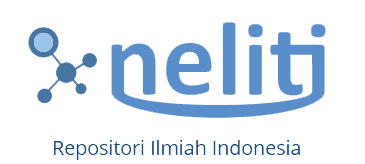Analysis of Women's Behavior and Work Ethic at the National Level in Timor-Leste: Achieving Leadership and Gender Equality
DOI:
https://doi.org/10.36982/jeg.v9i3.5172Abstract
Objective: The aim of this study is to analyze the behavior and work ethic of women at the national level in Timor-Leste in the pursuit of leadership and gender equality.
Design/Methods/Approach: The study was conducted on women in Timor-Leste using a mixed-methods approach. The population consisted of all women holding government positions in Timor-Leste. Using a purposive sampling technique, 21 respondents were selected. With the mixed-methods approach, primary data were collected through questionnaires and interviews, while secondary data were gathered through direct communication techniques. The research instruments for secondary data included book studies, papers, documents, regulations, diaries, and similar sources. Additionally, limited interviews were conducted with authorized individuals responsible for providing data related to the research subjects. The data were processed descriptively, aiming to analyze and summarize the fundamental characteristics of the collected data. Data presentation was carried out immediately after all data were gathered through questionnaires, interviews, observations, and available documentation related to gender equality, women's leadership, and existing legislation.
Findings: The biggest challenges in achieving leadership positions for women include gender bias, lack of family support, and insufficient education and training, which hinder women from reaching top leadership roles. Patriarchal culture also contributes to domestic violence, making women feel insecure about pursuing leadership positions. Key factors that can support women in achieving leadership include leadership training to broaden their understanding of leadership, workplace gender equality policies, and support from supervisors. These three elements can help women advance to higher positions. The primary obstacle to achieving gender equality is patriarchal culture, which limits women's opportunities to pursue higher education. The lack of education and training results in women feeling less confident, undervalued, and hesitant to compete with men. The future of women's leadership will be realized when gender equality is achieved across all sectors, with more women holding leadership positions. Timor-Leste's legal framework already provides significant opportunities for women's leadership. What is now needed is the genuine commitment to implement the constitutional mandates and existing laws effectively.
Originality/Value: The novelty of this research lies in the fact that no previous studies have been conducted on the behavior and work ethic of women in Timor-Leste.
Practical/Policy implication: The research findings provide recommendations to policymakers and organizations on how to enhance women's participation in leadership and create a supportive environment for gender equality in Timor-Leste.
Downloads
Published
How to Cite
Issue
Section
License
Copyright (c) 2025 Diah Pranitasari; Maria Angelina Lopes Sarmento

This work is licensed under a Creative Commons Attribution-ShareAlike 4.0 International License.
Authors who publish with this journal agree to the following terms:
- Authors retain copyright and grant the journal right of first publication with the work simultaneously licensed under a Creative Commons Attribution License   that allows others to share the work with an acknowledgement of the work's authorship and initial publication in this journal.
- Authors are able to enter into separate, additional contractual arrangements for the non-exclusive distribution of the journal's published version of the work (e.g., post it to an institutional repository or publish it in a book), with an acknowledgement of its initial publication in this journal.
- Authors are permitted and encouraged to post their work online (e.g., in institutional repositories or on their website) prior to and during the submission process, as it can lead to productive exchanges, as well as earlier and greater citation of published work










